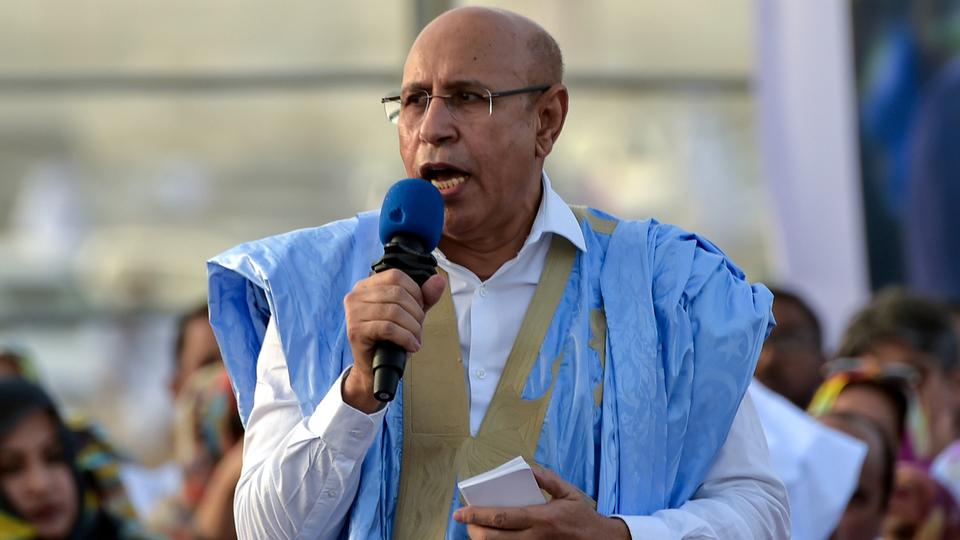Authorities in Mauritania have arrested a journalist, an opposition politician and number of citizens in a recent clampdown on freedom of expression online that includes the adoption of a new law on the publication of false information.
The National Assembly on June 24, 2020, approved a new law to deal with the publication of false information on social media, prompting criticism from some opposition Parliamentarians and human rights activists who cite several “ambiguities” and “inexactitudes.”
When it comes into effect after its publication in the Official Journal, the law will penalise infractions with a jail term of between three months and five years. It also imposes fines ranging from 50,000 Mru (150 USD) and 200,000 Mru (600 USD).
Critics say the new law amounts to adding another layer of difficulty in the dissemination of information in a country that already has a reputation for institutional secrecy. The government however insists that its objective is to combat the manipulation of information, especially during health crises and election periods.
The law also comes just eight days after the UN Human Rights Council’s July 16, 2020 Resolution HRC44 on freedom of opinion and expression which, among other recommendations, urges states to ensure that their responses to the phenomenon of false publication and fake news are “grounded in international human rights law, including the principles of lawfulness, legitimacy, necessity and proportionality.”
Given a recent wave of arrests over social media publications, the new law on false publication is feared to signal a new resolve to muzzle free expression, especially online.
In the night of July 8, 2020 for instance, Mauritania’s state security arrested Moustapha Ould Ahmed El Meki, a former Mayor of the city of Akjoujt on accusation of insulting president Mohamed Ould sheikh Ghazouani in a Facebook video.
In the video, El Meki, a staunch supporter of former President Mohamed Ould Abdel Aziz, criticised ongoing corruption probe against the former president and castigated the incumbent, Mohamed Ould sheikh Ghazouani.
On July 14, El Meki was put before the public prosecutor who accused him of insulting and inciting hate against the President of the Republic. He was subsequently released by the investigating Magistrate but subject to judicial control.
On June 2, the police arrested Salma Mint Tolba, the alleged author of a series of audio recordings questioning aspects of the government’s response to the COVID-19. Notably, she accused the authorities of inflating the number of infections.
Two other people, Mohamed Ould Semmane and Sidi Mohamed Ould Beyah, who were suspected to have participated in the dissemination of the audio, were also arrested.
On June 3, the police arrested Eby ould Zeidane over a Facebook post in which he challenged the dates on which Mauritanians observe the annual fasting in the Islamic month of Ramadan. He condemned religious fanaticism in Mauritania and said his compatriots have deviated a lot from the path of Prophet Muhammad.
Zeidane was brought before an investigating judge on charges of blasphemy On June 8. He is also charged with “publishing leaflets that undermine the values of Islam” under section 21 of the Cybercrime Act.
Zeidane’s case evokes chilling memories of the ordeal of Mohamed Ould Mkheitir who was sentenced to death for blasphemy in January 2014 for a similar Facebook post. The blogger spent five years in prison despite his death sentence having been commuted to two years in prison on appeal at a time he had already spent nearly three years in detention.
To appease religious fanatics protesting the Appeal Court’s decision, the government on November 17, 2017, modified Article 306 of the Criminal Code under which the blogger had won his appeal by pleading repentance. The revised law disallowed repentance as a mitigating circumstance in blasphemy cases. Mauritania is a highly conservative country where religious issues are very delicate, with the authorities often exploiting religion to appease the vociferous radicals.
Besides the revised Article 306 of the Criminal Code, Article 21 of Law No 2016-007 on Cybercrime, under which Zeidane is charged, punishes by up to four years in prison and 3.000.000 d’ouguiyas (the equivalent of 9000 USD) any computer-assisted publication which undermines the values of Islam.
These developments add to earlier incidents of the arrests and detentions of journalists, bloggers and pro-democracy activists over critical online publications since January 2020, raising consternation within the human rights and freedom of expression circles.
The anti-slavery movement; Initiative pour la Resurgence Abolitioniste (IRA) said “the wave of arrests demonstrates an authoritarian attitude at the top of the Executive.
The Media Foundation for West Africa MFWA is equally concerned about these developments. The arrests and prosecution of individuals for their critical comments on social media demonstrate a level of intolerance that is unacceptable in a democracy.
We therefore call on the authorities in Mauritania to drop all charges against Zeidane and El Meki and to put an end to the ongoing crackdown on dissent. We further appeal to President Ghazouani to take into account the various criticisms about the new law on false publications before assenting to it. Above all, we urge the President to make it a point of honour to ensure a clean-up of the press freedom and freedom of expression environment of Mauritania which keeps deteriorating by the day.





